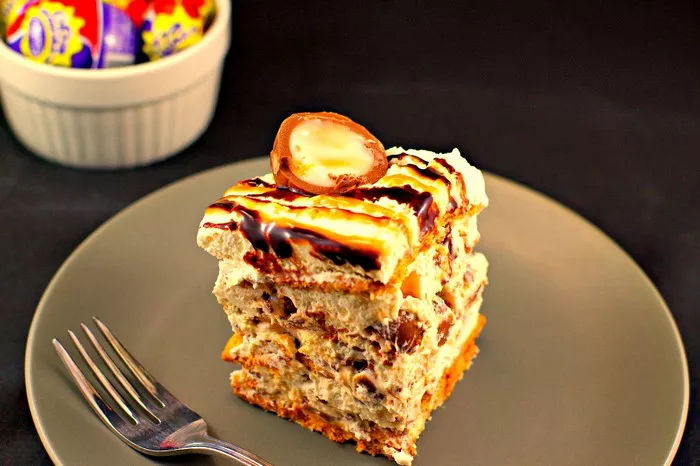Are you looking for delectable dessert options that adhere to halal dietary guidelines? Whether you’re planning a special celebration or simply have a sweet tooth, it’s essential to know which desserts are permissible under halal principles. In this informative guide, we’ll explore the world of halal desserts, what makes them halal, and provide a mouthwatering list of popular halal dessert choices.
1. Halal Desserts
Before we delve into the list of halal desserts, let’s understand what makes a dessert halal:
No Alcohol or Intoxicants: Halal desserts should not contain any form of alcohol or intoxicating substances.
No Pork or Pork By-products: Ingredients such as gelatin made from pork should be avoided.
No Cross-Contamination: Desserts should be prepared in a kitchen or environment where there is no cross-contamination with non-halal ingredients.
2. Popular Halal Desserts
Now, let’s explore some mouthwatering halal dessert options:
Baklava: This Middle Eastern pastry features layers of flaky phyllo dough filled with nuts and sweetened with honey or syrup.
Rice Pudding (Kheer): A creamy and comforting dessert made from rice, milk, sugar, and flavored with cardamom, saffron, and nuts.
Fruit Salad: A simple yet refreshing choice, combining a variety of fresh fruits with a drizzle of honey or a sprinkle of chaat masala for added flavor.
Gulab Jamun: These soft, syrup-soaked doughnut-like balls are a beloved treat in South Asian cuisine.
Date-Paste Filled Pastries: Common in Arabic cuisine, these pastries are filled with a sweet date paste and often topped with sesame seeds.
Falooda: A popular dessert beverage from South Asia, featuring vermicelli noodles, rose syrup, ice cream, and various toppings.
Qatayef: A stuffed Arabic dessert that resembles a folded pancake, filled with sweet cheese or nuts and then fried or baked.
3. Homemade Halal Desserts
Creating halal desserts at home allows you to have full control over the ingredients. Here are a few ideas to get you started:
Halal Chocolate Fondue: Melt halal-certified chocolate and dip fruits, marshmallows, or cookies for a delightful treat.
Halal Ice Cream: Many brands offer halal-certified ice cream in various flavors for a cool and sweet dessert option.
Halal Cheesecake: Make a delicious cheesecake using halal-certified cream cheese and halal graham crackers for the crust.
4. Checking Labels and Certification
When purchasing pre-packaged desserts or ingredients, it’s essential to check for halal certification symbols on the packaging. These symbols indicate that the product meets the halal dietary requirements.
5. Customizing Halal Desserts
One of the great things about halal desserts is that they can be customized to suit various dietary preferences, including vegan and gluten-free options. Experiment with recipes and substitutions to create desserts that cater to your specific needs.
In conclusion, there is a wide array of delicious halal desserts to satisfy your sweet cravings. From traditional treats to modern twists, the world of halal desserts is rich and diverse. Whether you’re enjoying them at a restaurant or creating them in your own kitchen, these desserts are a delightful way to indulge while staying true to your halal principles.
FAQs related to the topic of halal desserts:
Q1: What does “halal” mean in the context of desserts?
A1: “Halal” refers to foods and ingredients that are permissible and compliant with Islamic dietary laws. Halal desserts are those that adhere to these dietary guidelines, ensuring they contain no prohibited substances, such as alcohol or pork, and are prepared in a clean and non-contaminated environment.
Q2: Are there any specific ingredients to avoid when making halal desserts?
A2: Yes, there are certain ingredients to watch out for, including alcohol-based extracts, flavorings, or gelatin made from non-halal sources (such as pork). It’s essential to check labels and opt for halal-certified ingredients.
Q3: Can I find halal-certified desserts at regular grocery stores?
A3: While some mainstream grocery stores may carry halal-certified desserts, it’s more common to find them at specialty halal markets or stores that cater to specific dietary requirements. Always check for halal certification symbols on product labels.
Q4: Are there vegan or gluten-free halal dessert options available?
A4: Yes, you can find vegan and gluten-free halal dessert options. Many traditional halal desserts are naturally gluten-free, and you can adapt recipes to make them vegan by using plant-based ingredients like almond milk and egg substitutes.
Q5: How can I make sure a restaurant’s dessert is halal when dining out?
A5: When dining out, it’s advisable to ask the restaurant staff about their halal options and if they use halal-certified ingredients. Some restaurants may display a halal certification, making it easier for you to identify suitable choices.
Q6: Can I make halal desserts at home without compromising on taste?
A6: Absolutely! There are numerous delicious halal dessert recipes available that taste just as good as their non-halal counterparts. Experiment with different flavors and ingredients to find your favorite halal dessert recipes.
Q7: What are some traditional halal desserts from different regions?
A7: Traditional halal desserts vary by region. Some examples include Baklava (Middle Eastern), Gulab Jamun (South Asian), Ma’amoul (Arabic), and Kunafa (Middle Eastern). These desserts reflect the rich culinary diversity of halal sweets.
Q8: Are there any common misconceptions about halal desserts?
A8: One common misconception is that halal desserts are limited in variety or flavor. In reality, there is a wide range of delicious halal dessert options available, from fruity to chocolatey, and they can be as decadent as any other dessert.
Q9: What are some tips for making sure homemade desserts are halal?
A9: To ensure your homemade desserts are halal, carefully select halal-certified ingredients, check for hidden sources of non-halal substances, and maintain a clean and separate cooking environment to prevent cross-contamination.
Q10: Can people of different dietary preferences enjoy halal desserts?
A10: Yes, halal desserts can be enjoyed by people of all dietary preferences. They are often suitable for vegetarians and can be customized to meet vegan, gluten-free, or other dietary requirements while remaining delicious and flavorful.
























